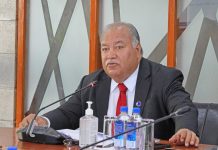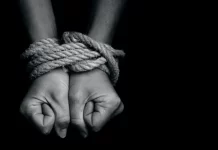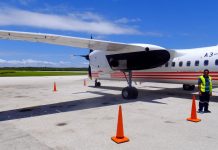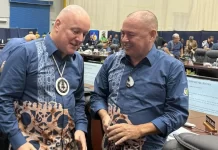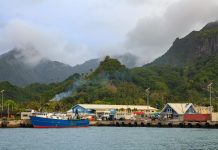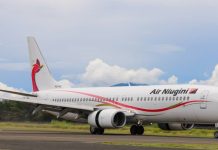By Nacanieli Tuilevuka
Most national airlines in the Pacific including Fiji Airways have run out of money.
Association of the South Pacific Airlines (ASPA) chief executive George Faktaufon said the closures of borders due to the coronavirus have had a huge impact on the national airlines in the Pacific.
Faktaufon said this has caused million-dollar of losses to national airlines in the Pacific as most of their planes have been grounded since March last year.
Addressing the coronavirus economy recovery workshop, Faktaufon said the airlines reduced costs by applying all sorts of measures but they still had eighty per cent fixed cost remains.
“Due to the current situations, airlines were forced to comply with the government-imposed restrictions including effectively grounding operations since March last year,” he said.
“The expectations from most of the airlines in the region is that the grounded of operations would be only for six months then we will be back to normal.
“They reduced work hours, a decrease of salary and eventually they still had to let go of some people but we still have 80 per cent of our fixed costs remain.
“Most airlines of the region were promised assistance by the government which for some months it took so many months to eventuate and some still has not been provided.
“For some airlines in the region assistance from their government was very limited. Most of the national airlines in the Pacific have run out of money.
“They have costs that are incurring. So, when we recover there are a lot of funds that had been needed to help the airlines resume normal operations.
“Fifteen months on, and there’s no obvious way out of the current situation that we in. Most of the national airlines in the Pacific have run out of money,” he said.
He said to add on the ongoing problem the national airlines of the region are facing during this pandemic is the increase in the cost of compliance.
“The cost of compliance has escalated. And in the airline industry safety is very important. Dangerous simulator training for a dash eight crew used to cost about Australian $12,000 (US$8,950).
“It is now about $52,000 (US$38,000) and takes five weeks because if you take into account, all the quarantine requirements and the time it takes to undergo the training. The price is reasonable.
“Then we have compulsory maintenance checks to aircraft that are due, although they are not flying. Then there’s no money to pay for those checks.
“You wait until you have money, in the meantime, the aircraft deteriorates on the ground. This is the type of cost that the airlines are incurring now, but not earning any revenue,” he said.
Faktaufon said there will be great consequences faced by the national airlines of the region if the governments continued to be inactions.
“If money is made available, the industry survives. If there’s no funding the local industry dies. When the industry dies, then the foreign operators come in,” he said.
“Lack of proper facilities and oversight in the islands could have an impact on even allowing foreign operators to come in if we do nothing.
“The end of the result is that we will be ruined. It may sound funny, but if we don’t act now, you can end up with that kind of situation,” he said.
He said there was an urgent need for national airlines of the region to urgently establish a high-level task team to evaluate all these issues that he had identified.
He said there was also a need to review the air transfer system within the region and identify options that will ensure air transport needs region are met.
SOURCE: FIJI LIVE/PACNEWS



